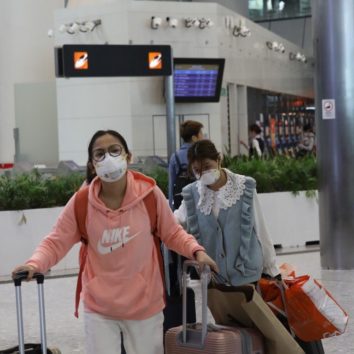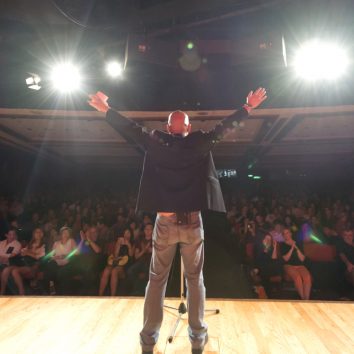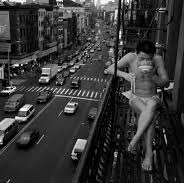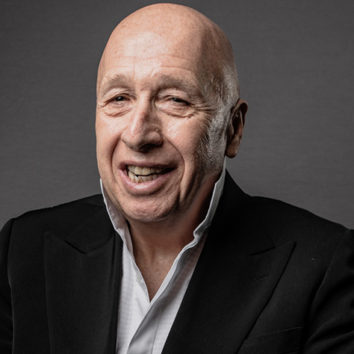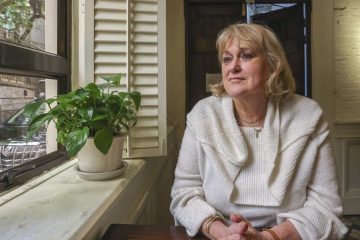
How a mother built resilience after accident left her son disabled, and her psychological journey through pain and guilt
— February 24, 2023After Jennifer Bovard Kende’s son Ben suffered a devastating rugby accident in 2010, she went through her own post-traumatic stress and blamed herself

When her 18-year-old son Ben suffered a devastating accident playing rugby for Hong Kong in Bangkok, Thailand in 2010, Jennifer Bovard Kende went through a parent’s worst nightmare: he was left quadriplegic.This newspaper has covered Ben’s accident and rehabilitation, as well as the Ben Kende Spinal Research Foundation that was established to work towards finding a cure for paralysis and help those who suffer spinal injury, and recently reported on Ben’s new life in Sydney as a practising lawyer.
But nothing has been written about his mother and her experience as a parent navigating these frightening and uncharted waters.
I choose a quiet spot at Hong Kong’s Foreign Correspondents’ Club, and even before the coffee is ordered, Bovard Kende leans across the table, eager to impress on me her key message.
“I want to tell parents to check the protocols before they send their kids to [participate in] sporting events. I didn’t,” she says.
“They should make sure they’ve got all the right equipment, that they’ve got a spinal brace, that they know where they are going to go for serious injuries, and it should be an internationally accredited hospital.”
This is a message she shares at Rotary Clubs where she speaks about disability in Hong Kong. It is part of the long process of making sense of what happened. A positive she draws from the horror of her son’s accident is that proper protocols are now in place.
Her book, Undamaged – published pro bono by Sherriff Books in December 2021, with all proceeds going to the Ben Kende Spinal Research Foundation – was also part of that healing.
“I wrote the book because I wanted to get it off my chest. It was therapeutic,” says Bovard Kende, an organisational psychologist, who draws on psychological principles and research methods to solve problems and improve quality of life in the workplace.
Nothing can prepare a parent for such devastating news. Initially she and her husband were numb with shock, then they cycled through the stages of grief, she says.
“We were in denial for a long time – for years we thought we might be able to get Ben to walk again. And then angry. Angry that he had been taken to a domestic hospital which, according to the medical expert in Australia, denied him any chance of recovery,” she says.
Her advice to parents who ever find themselves facing news that truly rocks their world is to maintain their daily structure as much as possible.
“All the research shows that if you keep to your routines you’ll recover faster. Just keep doing what you did before, and you will recover faster no matter how miserable you are,” she says.
Circumstances meant Bovard Kende couldn’t do that. She quit her job and spent a month in Thailand with her son, then six months with him in Hong Kong, taking him to daily therapy sessions. Then the two relocated to Australia for rehab. Altogether, she was away from her husband and daughter in Hong Kong for two years.
As a psychologist, Bovard Kende knows that it is difficult to make decisions when you are emotional. Strong emotions cloud the brain’s prefrontal cortex, which plays a central role in cognitive control functions, making it hard to clear your head and think rationally.
Despite knowing this, she still blames herself for what she sees as poor decisions made in the immediate aftermath of her son’s accident.
“Many of the decisions we made were wrong. Had I known America was so good [for medical treatment] I would have taken him there immediately, but it takes a while to find these things out. You are in an area where you have no expertise all of a sudden,” she says.
She was with Ben for his first six months at Sydney University, living in the staff quarters and driving her son to doctor appointments, classes and therapy. Although she had friends in Sydney, she kept to herself and felt quite lonely.
“I was going through a subtle form of post-traumatic stress where I was very withdrawn. I had left my 13-year-old daughter behind with my husband and I missed her. She had to go through puberty alone because I wasn’t there,” she says.
When she returned to Hong Kong, she was at a low ebb. She blamed herself for letting her son play a match when she hadn’t read the protocols, and began to recognise that, by blaming herself, she was slowing down her own recovery.
In Undamaged, she recounts what she describes as an almost psychic connection with her son.
“There is an invisible thread between Ben and I, and it hurt him to see my own pain, even when I was back in Hong Kong and he was in Sydney. I knew I had to snap out of this debilitating anguish because it was affecting my own healing,” she wrote.Her son suggested a three-month stint at a Buddhist monastery where she could meditate and heal. Instead of the monastery, Bovard Kende threw herself into her work, taking on a stressful, high-powered job as head of academics at the UK’s University of Sunderland in Hong Kong.
“I lost myself in my work. It was what I wanted, what I needed,” she says.
Now, there are three cornerstones of her life that help bolster her resilience: working out daily at the gym; looking after her health, particularly keeping an eye on her diet; and maintaining her social network.
In addition, she finds meaning and purpose through the charity she helped found, raising money for spinal research, and through her teaching as an organisational psychologist.
Concerns over finances meant she didn’t get useful counselling herself, but says “time is always your friend”.
It is 12 years since the tragic accident. Ben is now 30, gainfully employed as a lawyer, living with the support of a carer and with the love of his Norwegian girlfriend.
Resilience is about bouncing back to one’s pre-trauma state, while post-traumatic growth involves bouncing forward.
As an organisational psychologist, Bovard Kende used to do a lot of psychometric testing. She regularly measured bankers’ and financial advisers’ locus of control – the extent to which they felt in control of the events that influence their life – and found they were off the charts. Bovard Kende herself also recorded a high locus of control.
“Research shows that people with a strong internal locus of control have difficulty when things go wrong, such as serious illness or a stock market crash,” she writes in her book.
Meanwhile, people with an external locus of control mostly believe that destiny and fate determine their outcomes. They tend to suffer less because they see it as out of their control.
Interestingly, since her son’s accident, Bovard Kende’s own locus of control is now more external.
“I’m now much more a believer in fate,” she says.
Original Link: SCMP





